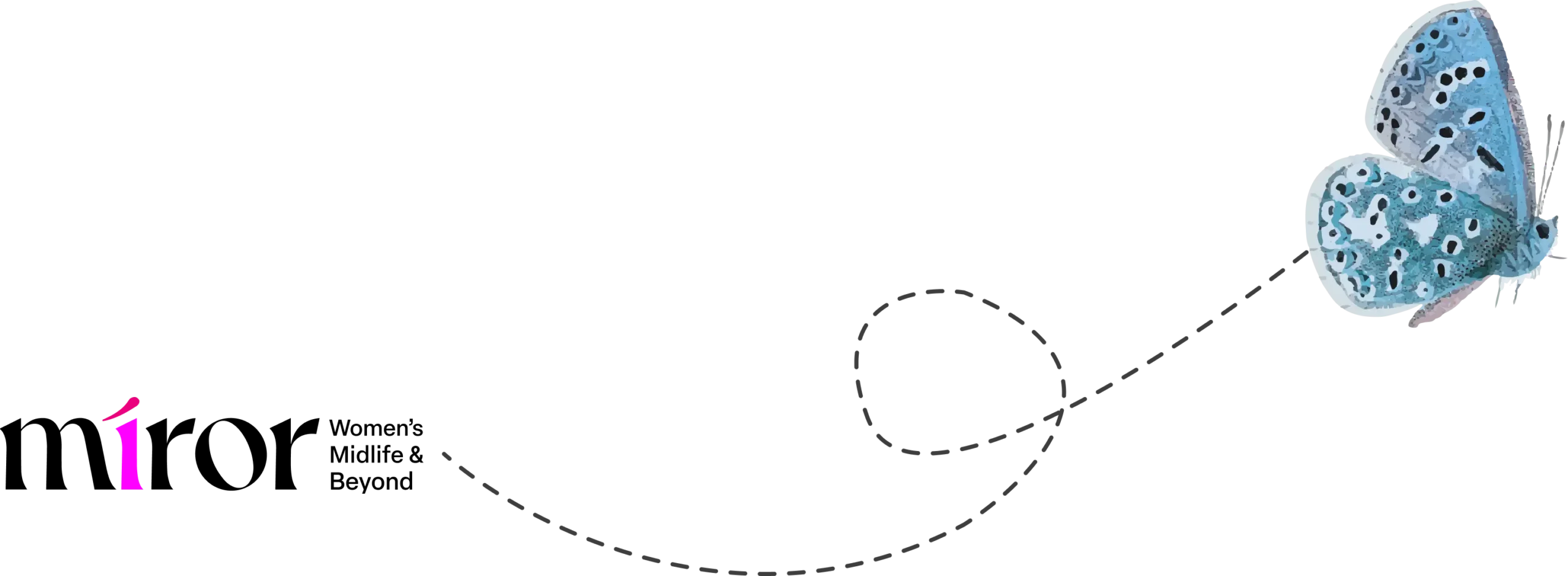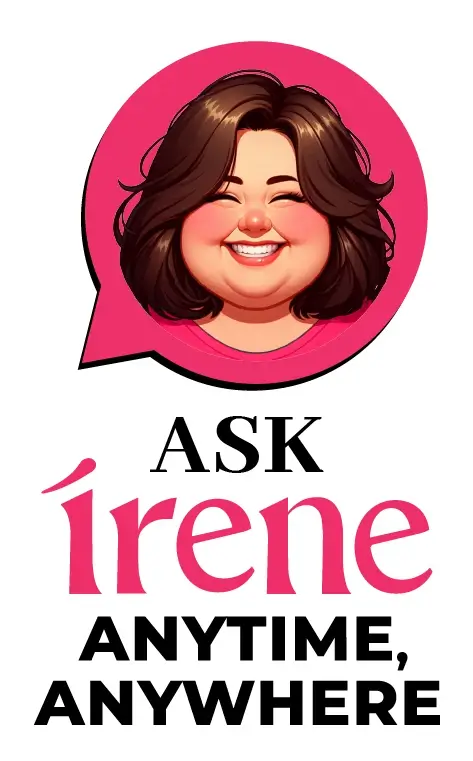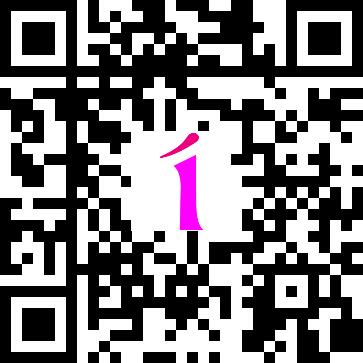
How to Manage Panic Attacks During Menopause
Menopause is a significant life stage for every woman, marking the end of her reproductive years. But while it’s natural, it doesn’t always feel easy. Many women face unexpected emotional and physical challenges during this transition, and one of the most alarming experiences can be panic attacks during menopause.
Imagine this: your heart races out of nowhere, your chest feels tight, and you can’t catch your breath. Maybe you even feel like something terrible is about to happen.
This overwhelming wave of fear is what many women describe when they experience panic attacks during menopause. But why does this happen? And how can it be managed? Let’s dive into the connection between menopause and panic attacks and explore ways to regain control over your mental and emotional health.
What Are Panic Attacks?
A panic attack is a sudden, intense episode of fear or anxiety that seems to come out of nowhere. It’s not just “feeling nervous” Panic attacks are often accompanied by physical symptoms, such as:
- Rapid heartbeat or palpitations.
- Shortness of breath.
- Dizziness or lightheadedness.
- Sweating or chills.
- Chest pain or discomfort.
- A feeling of impending doom or loss of control.
These symptoms can be terrifying, especially if you don’t know what’s causing them. For some women, panic attacks are entirely new during menopause, while others might notice an increase in their frequency.
How Menopause Affects Mental Health
Menopause is more than just the end of your monthly periods. It’s a time of massive hormonal shifts, particularly a decline in estrogen and progesterone levels. These hormones regulate reproduction and influence your brain’s neurotransmitters, like serotonin and dopamine, which affect mood and emotional stability.
This hormonal rollercoaster can lead to:
- Anxiety
- Mood swings
- Sleep disturbances
- Hot flashes
- Feelings of irritability or anger
For some, these emotional changes manifest as menopause and anxiety panic attacks, creating a mix of emotional turmoil and physical distress. These shifts can feel overwhelming, but understanding their root cause can make them less intimidating.
The Link Between Menopause and Panic Attacks
So, why are panic attacks more common during menopause? Here are some key reasons:
- Hormonal Fluctuations: Estrogen plays a significant role in regulating cortisol, the body’s stress hormone. When estrogen levels drop, cortisol can spike, making you more prone to anxiety and panic attacks during menopause.
- Physical Symptoms Acting as Triggers: Hot flashes, night sweats, or palpitations can feel intense and scary, sometimes triggering panic. For example, waking up drenched in sweat can create a chain reaction of fear and overwhelm.
- Sleep Disruptions: Many women struggle with insomnia or fragmented sleep during menopause. Lack of rest can heighten anxiety and lower your ability to manage stress, making you more vulnerable to menopause and anxiety panic attacks.
- Emotional Stress: Menopause often coincides with other life stressors—aging parents, grown children leaving home, or career transitions. This emotional load can contribute to menopause and anxiety panic attacks.
What About Menopause and Anger Attacks?
Alongside panic, many women also report experiencing sudden bursts of uncontrollable anger, often referred to as menopause and anger attacks. These can feel just as distressing as panic attacks. You might snap at loved ones or feel uncontrollable rage over minor things. Like panic attacks, anger episodes are linked to hormonal imbalances and the stressors of this transitional phase.
Recognizing that these reactions are common and not a reflection of your character, can be a relief. They’re a physiological response to the changes your body is undergoing.
How to Manage Panic Attacks During Menopause
The good news is that panic attacks during menopause can be managed effectively. While these episodes might feel overwhelming, they are manageable with the right tools and mindset.
Here’s a detailed roadmap to help you regain control and navigate through this challenging time:
1. Recognize the Symptoms
Awareness is the first and most crucial step in managing panic attacks. Many women initially mistake the symptoms for a heart attack or another medical emergency, which amplifies the fear.
- Learn to identify common signs of panic attacks, such as rapid heartbeat, sweating, chest discomfort, or dizziness.
- Keep a journal to note when and where panic attacks occur. This can help you identify triggers, whether it’s stress, lack of sleep, or specific situations.
Develop a mantra to repeat during attacks, like, “This is temporary, and I am safe.” It can serve as a calming anchor.
2. Practice Breathing Techniques
Breathing deeply and intentionally can counteract the hyperventilation that often comes with panic attacks.
- 4-7-8 Technique:
- Inhale deeply for 4 seconds.
- Hold your breath for 7 seconds.
- Exhale slowly and completely for 8 seconds.
- Repeat this cycle 4-5 times.
- Alternate Nostril Breathing (Nadi Shodhana):
- Use your thumb to close your right nostril and inhale through the left nostril.
- Close the left nostril with your ring finger and exhale through the right nostril.
- Alternate sides for 1-2 minutes.
Breathing exercises not only help during an attack but also reduce overall anxiety when practiced daily.
3. Adopt a Healthy Lifestyle
Your daily habits have a significant impact on how well you can manage menopause and panic attacks.
- Exercise Regularly:
- Eat for Hormonal Balance:
- Include magnesium-rich foods like spinach, nuts, and whole grains to calm the nervous system.
- Consume omega-3s (from fatty fish, walnuts, or flaxseeds) to reduce inflammation and support brain health.
- Phytoestrogen-rich foods like soy, flaxseeds, and lentils can mimic estrogen and help balance hormones.
- Stay Hydrated:
- Dehydration can exacerbate feelings of anxiety. Drink plenty of water throughout the day.
- Avoid Triggers:
- Limit caffeine, alcohol, and processed sugars, which can cause mood swings and anxiety spikes.
4. Prioritize Sleep
Sleep disruptions are common during menopause, and poor sleep can make you more susceptible to anxiety and panic attacks.
- Create a Sleep Sanctuary:
- Keep your bedroom cool, dark, and quiet.
- Use blackout curtains, a white noise machine, or a fan to create a calming environment.
- Establish a Bedtime Routine:
- Engage in calming activities like reading, gentle stretching, or journaling before bed.
- Avoid screens for at least an hour before sleep as blue light can interfere with melatonin production.
- Try Relaxation Techniques:
- Progressive muscle relaxation involves tensing and then releasing muscle groups from head to toe, promoting deep relaxation.
- Guided sleep meditations or apps like Calm or Headspace can help you drift off.
- Address Nighttime Triggers:
- If hot flashes are waking you up, wear breathable fabrics, use cooling pillows, or keep a fan by your bedside.
5. Seek Emotional Support
Isolation can worsen the emotional toll of menopause, so building a support system is vital.
- Join Support Groups:
- Online or in-person groups focused on menopause and anxiety panic attacks provide a safe space to share experiences and tips.
- Communities like Facebook groups or specialized forums often host discussions on managing symptoms.
- Talk to Loved Ones: Explain your experiences to close family and friends. Their understanding and support can make a world of difference.
- Consider Counseling: Cognitive Behavioral Therapy (CBT) is highly effective for managing panic attacks. It helps you identify negative thought patterns and replace them with constructive ones.
- Practice Open Communication: Journaling your thoughts can also help process emotions and track progress over time.
6. Create a Panic Attack Toolkit
Preparing for potential panic attacks can help you feel more in control:
- Grounding Techniques:
- Use the 5-4-3-2-1 method to focus on your surroundings:
- Name 5 things you can see.
- Touch 4 things you can feel.
- Listen for 3 things you can hear.
- Identify 2 things you can smell.
- Think of 1 thing you can taste.
- Use the 5-4-3-2-1 method to focus on your surroundings:
- Carry Calming Items:
- Keep lavender oil or a small stress ball in your bag for comfort.
- Download a relaxation or breathing app on your phone.
- Practice Visualization:
- Close your eyes and imagine a serene place, like a beach or forest, where you feel safe and calm.
7. Explore Holistic and Alternative Therapies
Many women find relief in natural approaches:
- Acupuncture: Helps regulate hormones and reduce anxiety.
- Herbal Remedies: Supplements like valerian root, chamomile, or passionflower may ease anxiety (consult your doctor before use).
- Mindfulness and Meditation: Daily mindfulness practices can retrain your brain to respond more calmly to stress.
Aromatherapy: Essential oils like lavender, bergamot, or sandalwood can promote relaxation.
8. Develop a Crisis Plan
When you feel a panic attack coming on:
- Find a quiet, safe space if possible.
- Use grounding or breathing techniques immediately.
- Call a trusted friend or family member to talk you through the episode.
- If panic attacks occur frequently, keep a list of professional resources like therapists or hotlines handy.
Empower Yourself
While panic attacks during menopause can be challenging, remember that they are manageable. With the right strategies and support, you can reduce their frequency and severity.
Be patient with yourself, celebrate small victories, and prioritize your well-being. You’re navigating a transformative stage of life—and you have the strength to thrive through it.
Citations
- Lin, S., Wang, H., Qiu, J., Li, M., Gao, E., Wu, X., Xu, Y., & Chen, G. (2023). Altered gut microbiota profile in patients with perimenopausal panic disorder. Frontiers in Psychiatry, 14, Article 1139992. https://doi.org/10.3389/fpsyt.2023.1139992
- Living Healthy. (2019, November 25). Can menopause cause anxiety, depression, or panic attacks? Women’s Health. Retrieved from https://health.clevelandclinic.org/is-menopause-causing-your-mood-swings-depression-or-anxiety
- Wiginton, K. (2023, July 13). The anxiety that came with my menopause. WebMD. Retrieved from https://www.webmd.com/menopause/features/anxiety-menopause
Copyfish
The desktop screen capture helper is not yet installed. This free helper app is required as the browser extension alone can not take desktop screenshots.
OCR Result(Auto-Detect)
Translated(English)
N/A

Prativa Chatterjee








